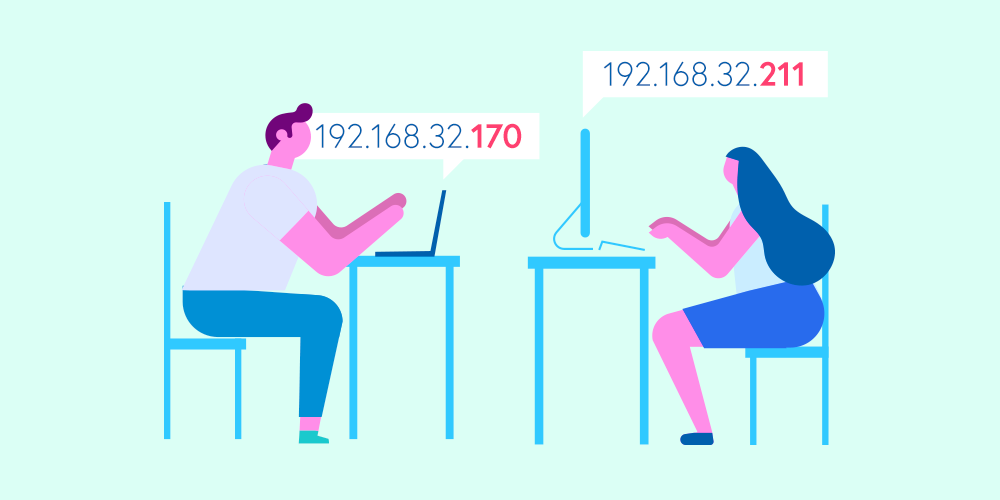Almost everything about us is numerically systemized to create some order. Assigning numbers has also proved effective in identifying things, places, and people.
We have the social security number, identification number, and also postal address to identify us in real life. On the internet, the IP address serves the same purpose.
What is an IP Address?
An Internet Protocol (IP) address is a unique set of numbers assigned to your device when you connect to the internet. Simply put, it is an identifier that allows communication and, importantly, transfer of data between devices on a network.

When your browser requests a page, the web site’s server will use your IP address to know where to send the requested data. Broadly speaking, IP addresses have two versions: IPv4 and IPv6. The IPv4 (most common) is a set of four two or three digits separated by a period e.g. 123.45.67.89.
On the other hand, IPv6 is yet to be completely adopted and has a different structure – a set of fours separated by a period e.g. 2001:db8:: 8a2e:370:7334. Of course, these are the basics but free to learn more about IP addresses here.
Your IP address is unique to you and can be used to pinpoint your location. Unfortunately, there is no way you can avoid using an IP address if you want to connect to the internet. The only thing you can do is hide your IP address. This doesn’t mean you won’t have an IP address, but rather you will have one that’s different from your real one.
Why Hide Your IP Address?
Several reasons necessitate hiding your IP address. The common ones are:

- To hide your real geographical location.
- To enjoy anonymity when surfing through the internet.
- To bypass IP restriction especially if you live in a country that restricts access to some sites or services, just like a VPN or Proxy connection.
- To gain access to geo-blocked content from streaming service providers like Netflix.
- To throw off cyberattacks targeted to your system.
How to Hide Your IP Address?
Below are several ways to accomplish the above.
By Using a VPN
Using a VPN is undoubtedly the best and easiest way to hide your VPN. You can sign up with any of the best VPN providers and enjoy anonymity when using the internet. VPNs act a subterfuge by assigning a different IP address that masks the real one.
Using the Tor Browser
Tor (The Onion Router) browser is an application that allows you to use the Tor network to browse with anonymity while hiding your IP. It is available for free and is compatible with various operating systems. By using a Tor browser, your traffic is heavily encrypted hence assuring you of online privacy. It is, however, maddeningly slow.
By Using a Proxy Server
A proxy server acts as an intermediary tunnel that reroutes the traffic to your browser. This option is unreliable due to the risks associated with proxies. Besides, most proxies will slow down your connection.
In a way, proxies operate in a similar way to VPNs – a VPN is technically a proxy. Proxies, however, lack encryption and other security feature present in VPNs. Even so, they still allow you to hide your IP, make sure you are using a trusted service.
Using Public WiFi or Mobile Hotspot
If you need to hide your IP temporarily and don’t want to use the methods above, you can opt for a public Wi-Fi connection (5 Reasons Why Using Public WiFi is Not Safe). It assigns your device a different IP address effectively hiding your real IP address. Note that this option is insecure, and we don’t recommend it unless you are using a VPN at the same time.
Leave a Reply